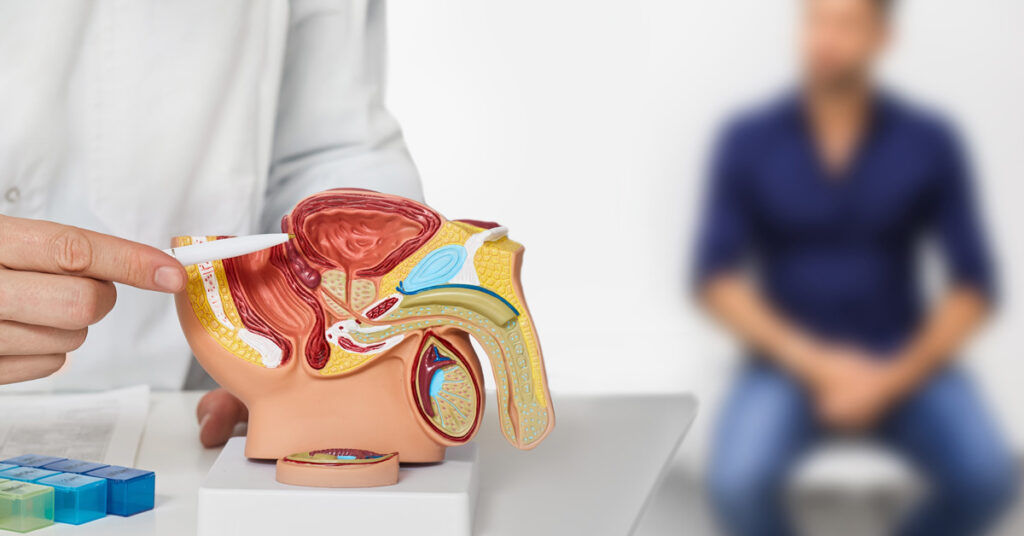Prostate cancer is one of the most common cancers that affect men. While prostate cancer rarely produces apparent signs and symptoms in its early stages, there are a few signs to be aware of so you can seek care with a urologist as soon as you notice them.
It is important to note that many of the signs of prostate cancer can be caused by non-cancerous conditions, so it can be challenging to know if you have prostate cancer without further testing. Your urologist can help you get to the bottom of your symptoms.
Signs of Prostate Cancer
Prostate cancer most frequently causes changes in urinary habits as its first clinical sign. However, early prostate cancer does not typically cause signs or symptoms. That’s why regular checkups, including digital rectal exams and PSA blood tests, are essential. When prostate cancer is found early, it is much easier to treat.
Urinary Changes
Prostate cancer can affect the urinary system and lead to various urinary symptoms. Most commonly, men may experience
- Frequent urination, especially at night (nocturia)
- Difficulty starting a urine stream or stopping a urine stream
- A weak urine stream or urinary dribbling
- Pain or burning with urination
- Blood in the urine
Blood Test Abnormalities
A prostate-specific antigen (PSA) blood test is a tool to help screen for and identify prostate cancer. High PSA levels can be a clue that prostate cancer is present. However, elevated PSA levels can also be due to other non-cancerous conditions, like benign prostatic hyperplasia (BPH), so this test alone will not provide a definitive prostate cancer diagnosis.
Erectile Dysfunction
Prostate cancer may impact your sexual function, resulting in difficulty achieving or maintaining an erection.
Pain
As prostate cancer becomes more advanced, it can cause pain and discomfort with ejaculation or blood in the semen. Some men with advanced prostate cancer may also experience bone pain, especially in the hips, spine, or ribs. Pain in the hips, spine, or ribs could indicate that prostate cancer has spread to the bones and should be evaluated by your doctor right away.
Fatigue
Tiredness and fatigue can be common in many diseases, including cancer. Generalized fatigue is a sign of advanced prostate cancer that has spread to other organs.
Unexpected Weight Loss
Unintentional or unexpected weight loss can be a sign of advanced cancer or many types, including prostate cancer. If those signs are paired with urinary symptoms, it can indicate that prostate cancer is the cause.
Benign Prostatic Hyperplasia (BPH) vs. Prostate Cancer
Benign Prostatic Hyperplasia is a benign or noncancerous condition where the prostate enlarges. BPH can lead to bothersome urinary symptoms that can often be confused with the symptoms of prostate cancer. BPH is very common as men age, but that does not mean the signs should be ignored.
If you are experiencing any concerning urinary changes, it’s time to schedule an appointment with a urologist.

